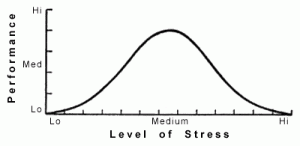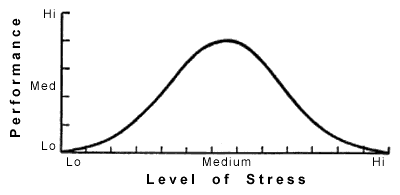Anxiously Awaiting Me, Weren’t You?
Anxiety is the dizziness of freedom. — Soren Kierkegaard
These last few weeks I’ve woken up with a sense of unease, an almost physical disturbance, like a picture frame slightly off level or a shoe lace that skipped an eyehole. An unsettling, really. An almost general sense of anxiety.
But what could be causing it?
Heck, I exercise regularly. I eat well. I have a burgeoning social group. I’m in graduate school. I—
Yeah, probably that last one.
After much introspection (typically done while waiting for the conditioner to saturate my hair—you don’t think such soft and shiny hair came natural, did you?) I realized that this anxiety was likely do to the underlying sensation that I was never getting enough done.
I have an experiment that still needs to be programmed, ran, and analyzed. I have class readings unread. Research readings untouched. I have my own personal writing to do. A stats test to study for. On and on the list goes—as is likely the case for most people. And all the while, here I am, thinking of everything I should be doing but instead writing a blog post.
Don’t ever forget the sacrifices I make for you.
Anxiety, however, is a very popular topic in psychology. And one of the most fundamental findings on anxiety is that its effect on performance works in a bell curve.
If you see the image on the right, with too little anxiety, you don’t perform that well. For instance, if I had no anxiety about my stats test, then I wouldn’t be motivated to study for it, and thus my performance is reduced. At the same time, however, if I have too much anxiety, it becomes

crippling (e.g. I’m so concerned about this test it prevents me from studying effectively).
Fortunately, for my upcoming test, I’m a statistics wizard and—
Oh man, not even I can exaggerate such a fallacious statement. To use statistical terms: Jake no good at number things.
However, with any task measuring performance, you want to hit that sweet spot of “anxiety” (note: anxiety is often termed “arousal” because any amount of anxiety is often connoted negatively).
Nonetheless, you say: “But, Jake, how do I reach that optimal level? My anxiety doesn’t seem like something I can control.”
But ah ha! This is where you’re mistaken. There are many psychological studies showing how to reduce/amp it up. Unfortunately, I am always in need of more blog ideas so those tips will have to wait for another week.
See, I’m already increasing your anxiety right there… Well, I’m increasing something.
However, to hold you over until then, my favorite “lay trick” for reducing anxiety consists of mentally stepping back and looking at everything as a whole. For example, how important is this stats test in the grand scheme of my goals? And this reimagining can easily be done when considering Earth as a pale blue dot.
Anxiously,
jdt








commit to the process, not the outcome, and you’ll grow professionally and perform well. ain’t nothing else to say about that!